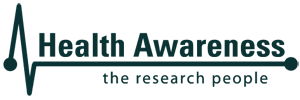What is Acne?
Acne at its most basic is a disorder of the pilosebaceous unit, or what is commonly called the hair follicle or pore. According to the American Academy of Dermatology, it is the most common skin disorder in the United States. Acne vulgaris, as common acne is known, is classified as a chronic inflammatory disease of the skin.
Acne is characterized by the presence of pimples, blackheads, and whiteheads. It chiefly affects the face, neck, chest, back, and/or upper arms of sufferers. Rarely you will find acne in other areas of the body. Acne varies in development from very mild to extremely severe.
What causes Acne?
All forms of acne result from disorders of the sebaceous glands. Sebaceous glands occur in greatest frequency on the face, upper neck and chest. These glands produce an oily substance called sebum, which helps keep skin and hair moisturized.
A form of bacteria called Propionibacterium Acnes, lives on the skin. This type of bacteria thrives on sebum and increases during the teen years when sebum increases. People who develop acne have more of these bacteria in their pores than other people do. This bacterium draws white blood cells to the pores. White blood cells give off an enzyme that destroys pore walls, causing whatever is in the pore to spill out into the dermis layer of the skin.
As a result of this event, inflammation can occur in the form of papules or red bumps, pustules, cysts, whiteheads, blackheads or nodules. The bacteria also creates irritants, which can increase inflammation and lead to infection.
How is Acne treated?
While there is no known cure for acne, it does respond well to treatment, especially if it is discovered early. There are many different types of treatment, depending on the severity of the problem.
For more information about Acne…
